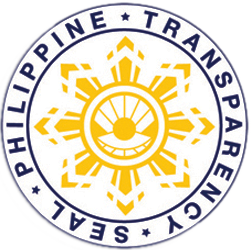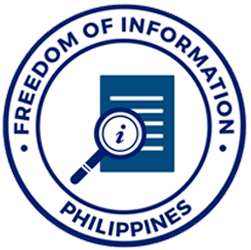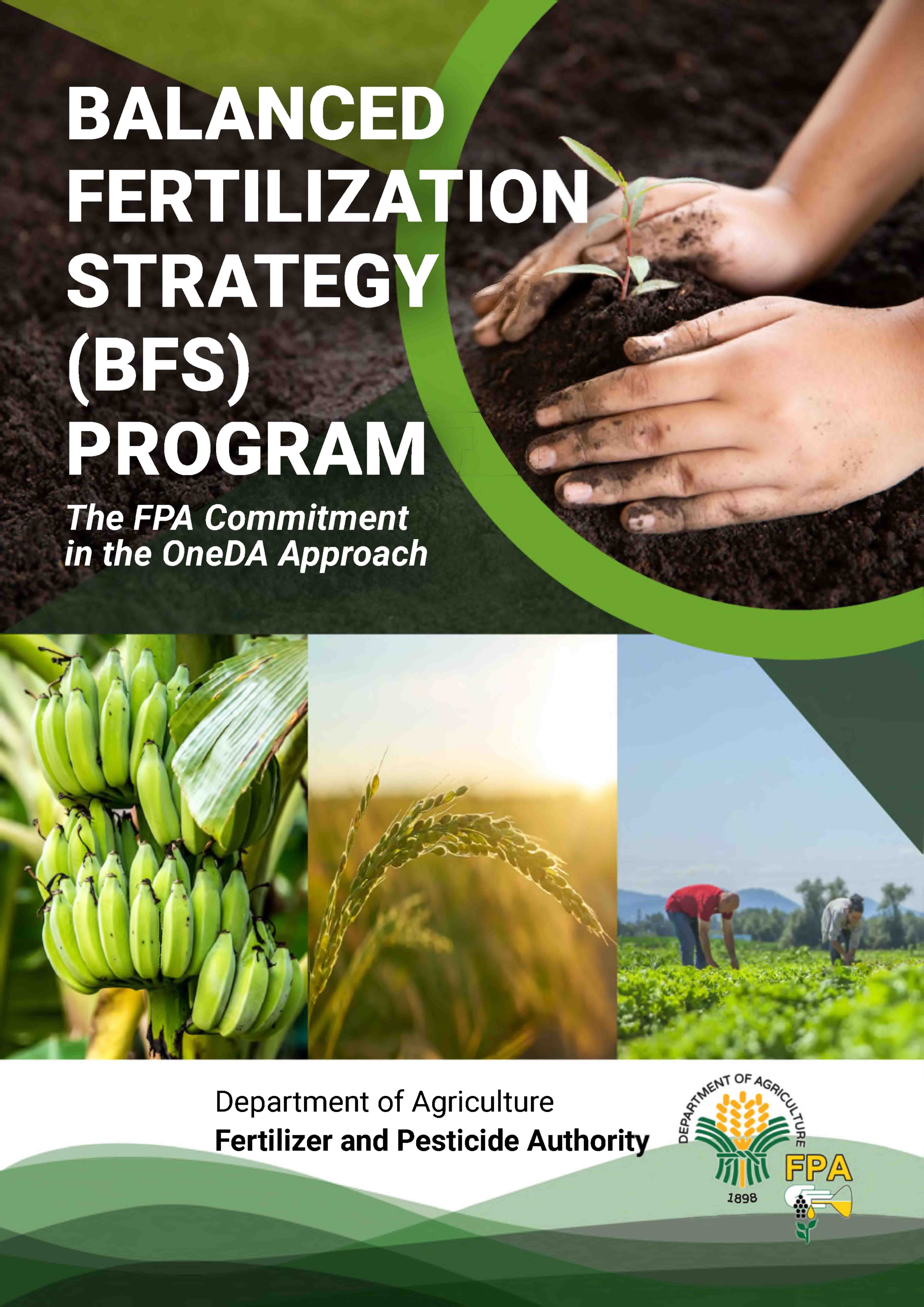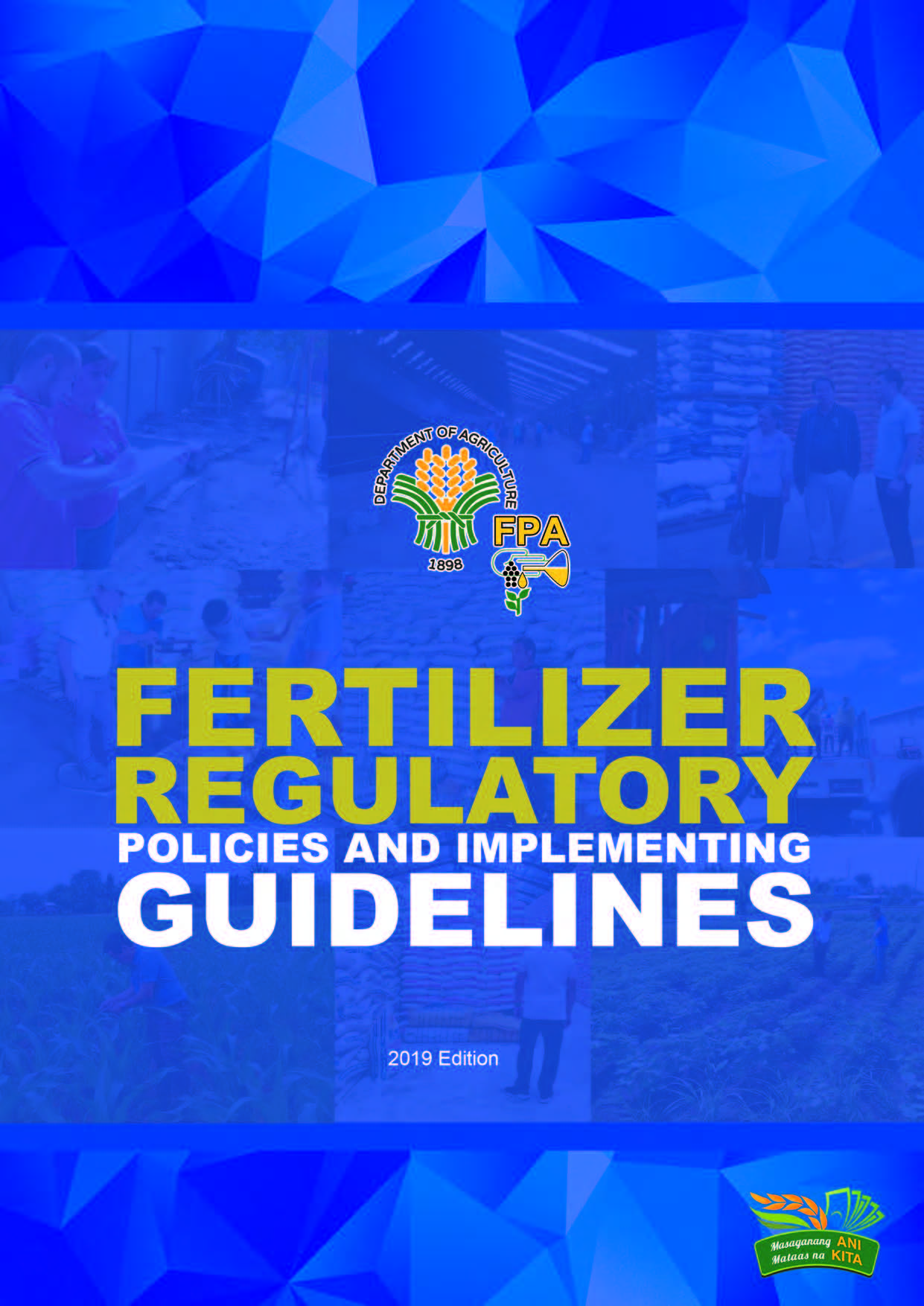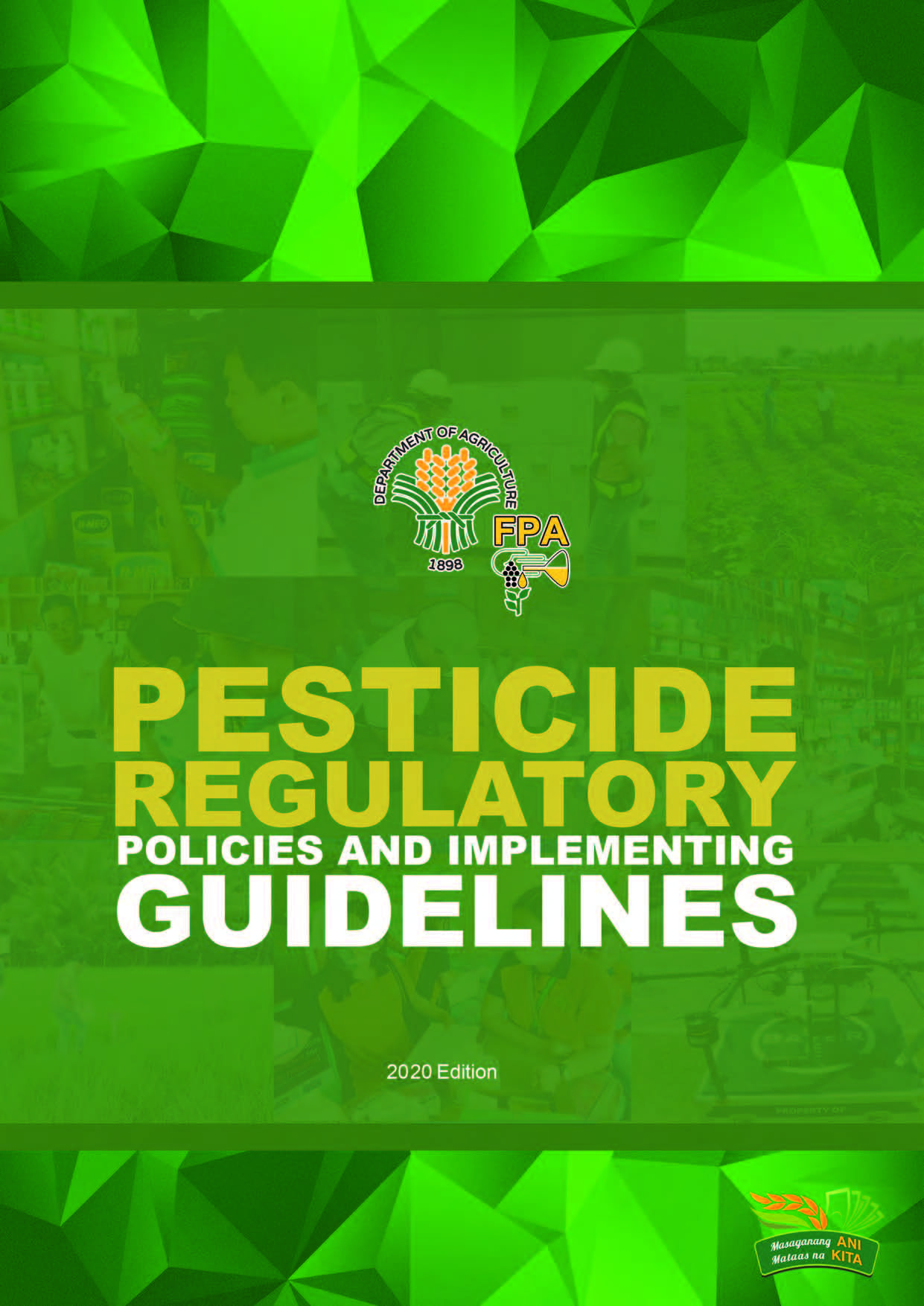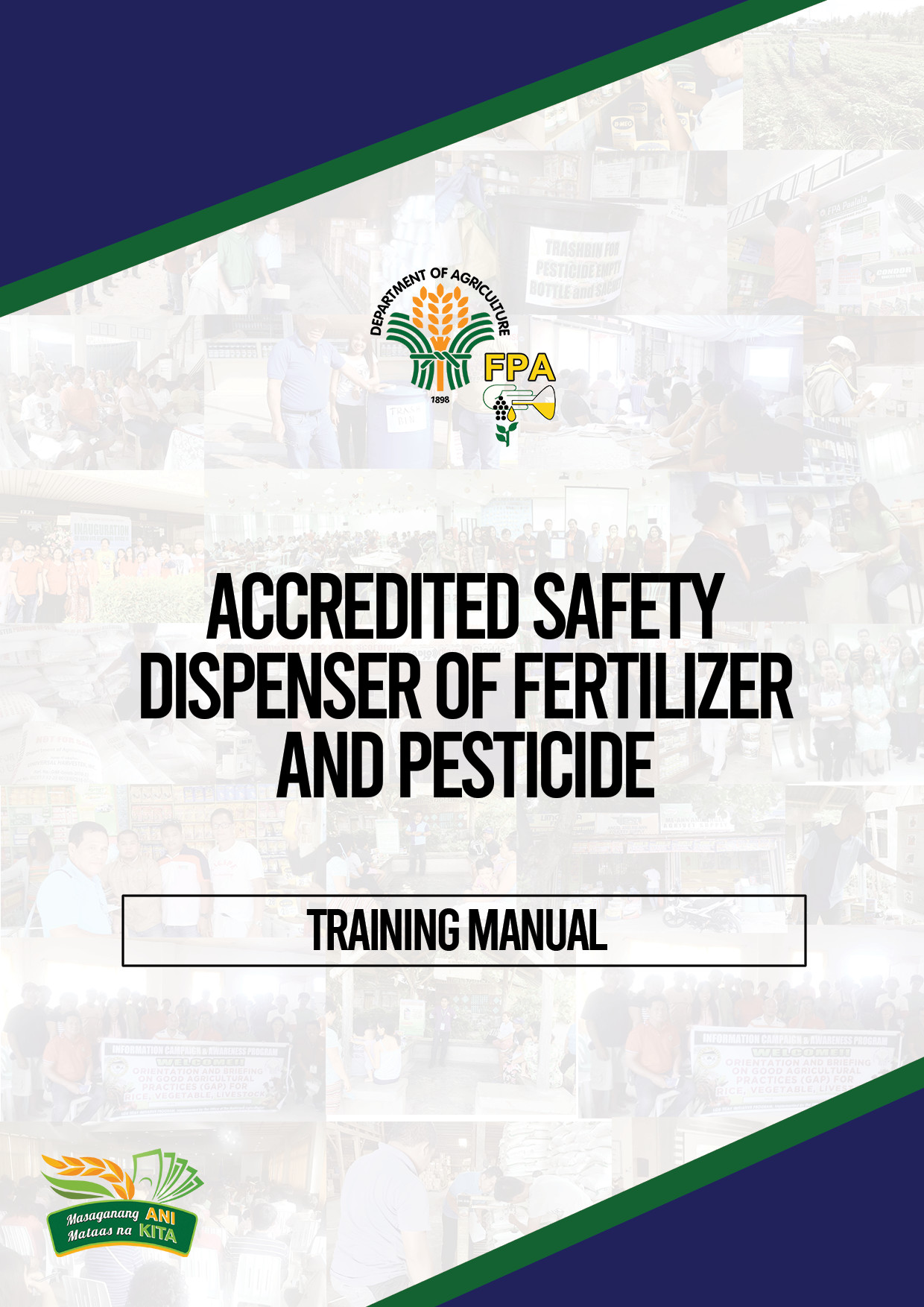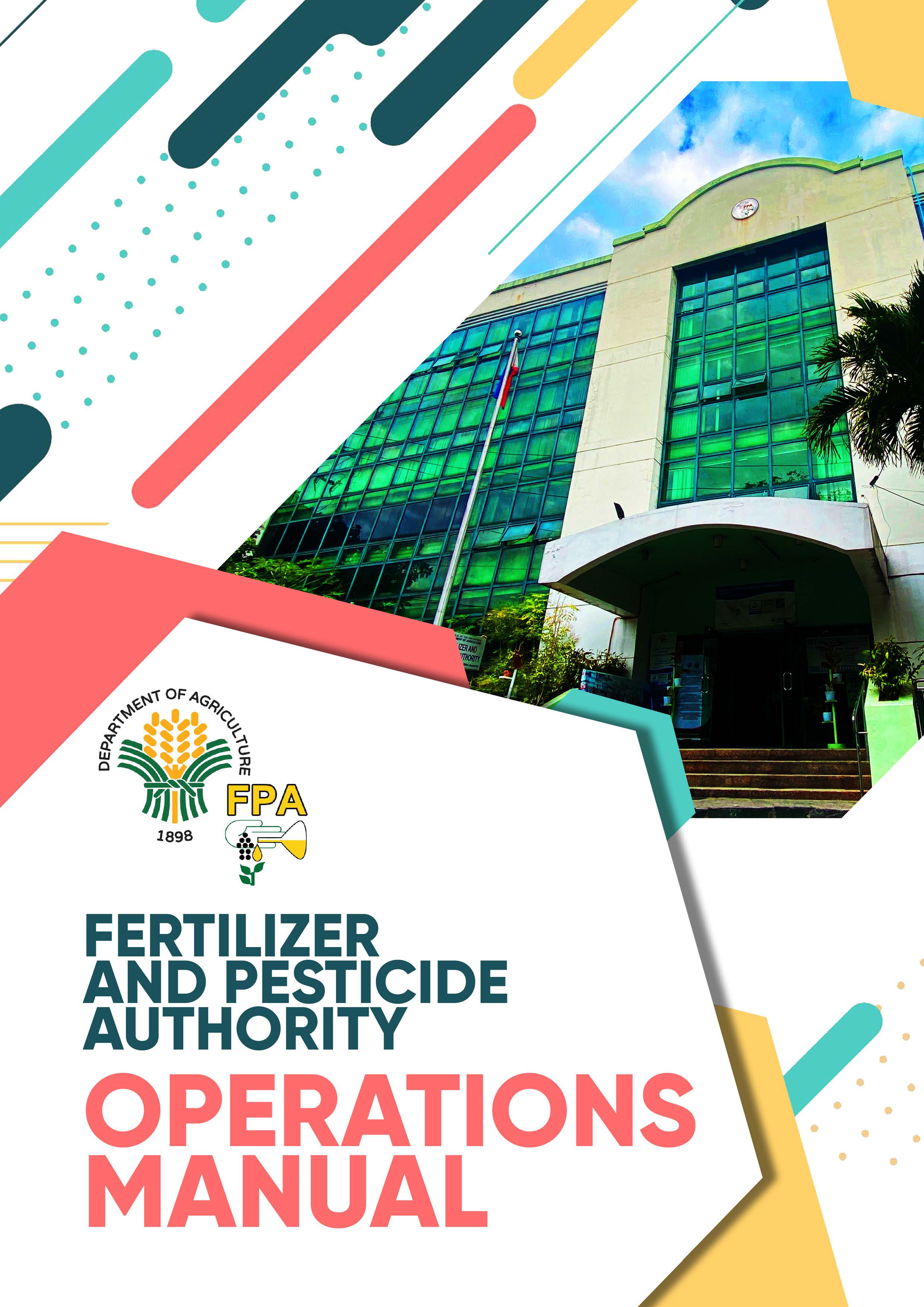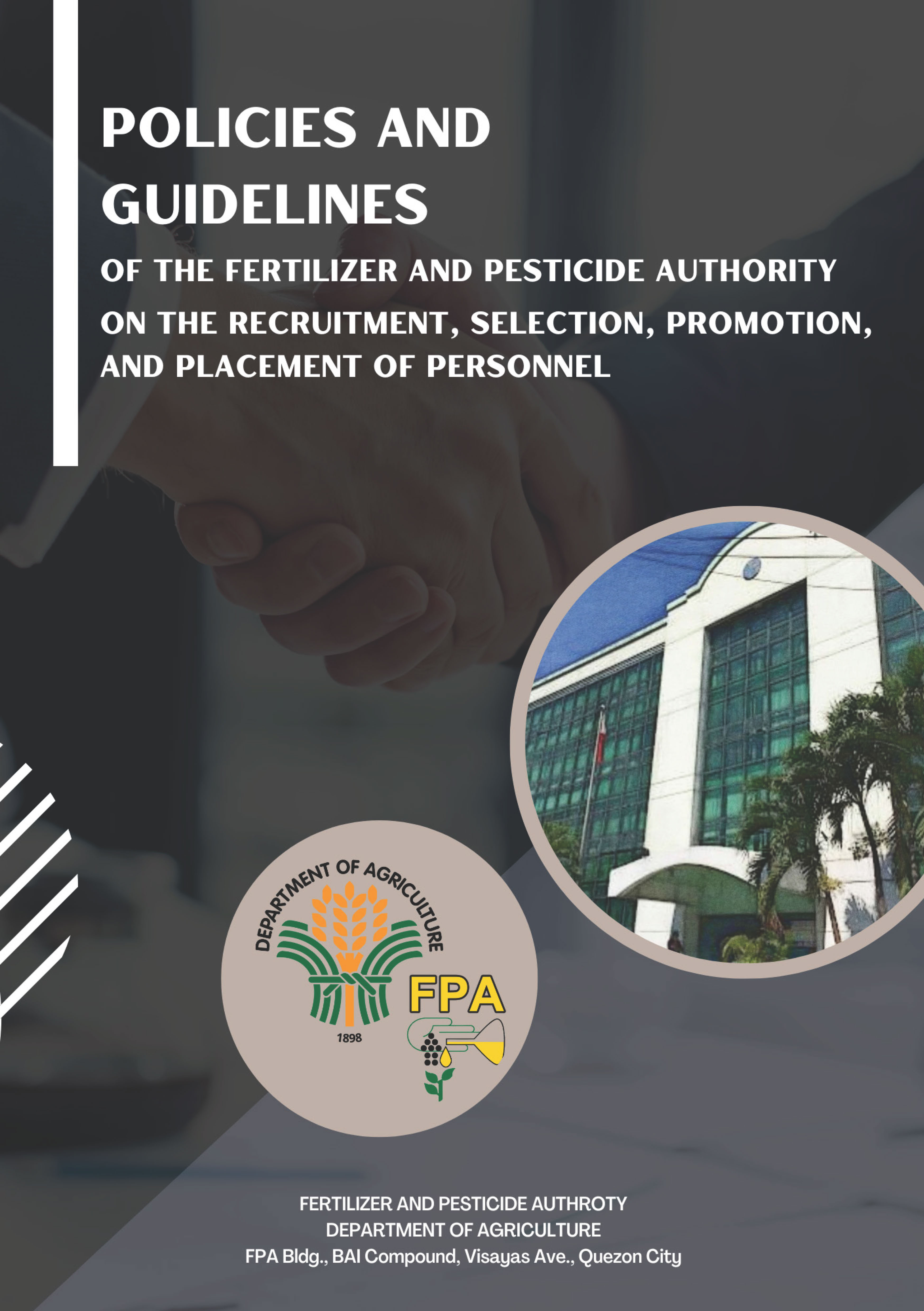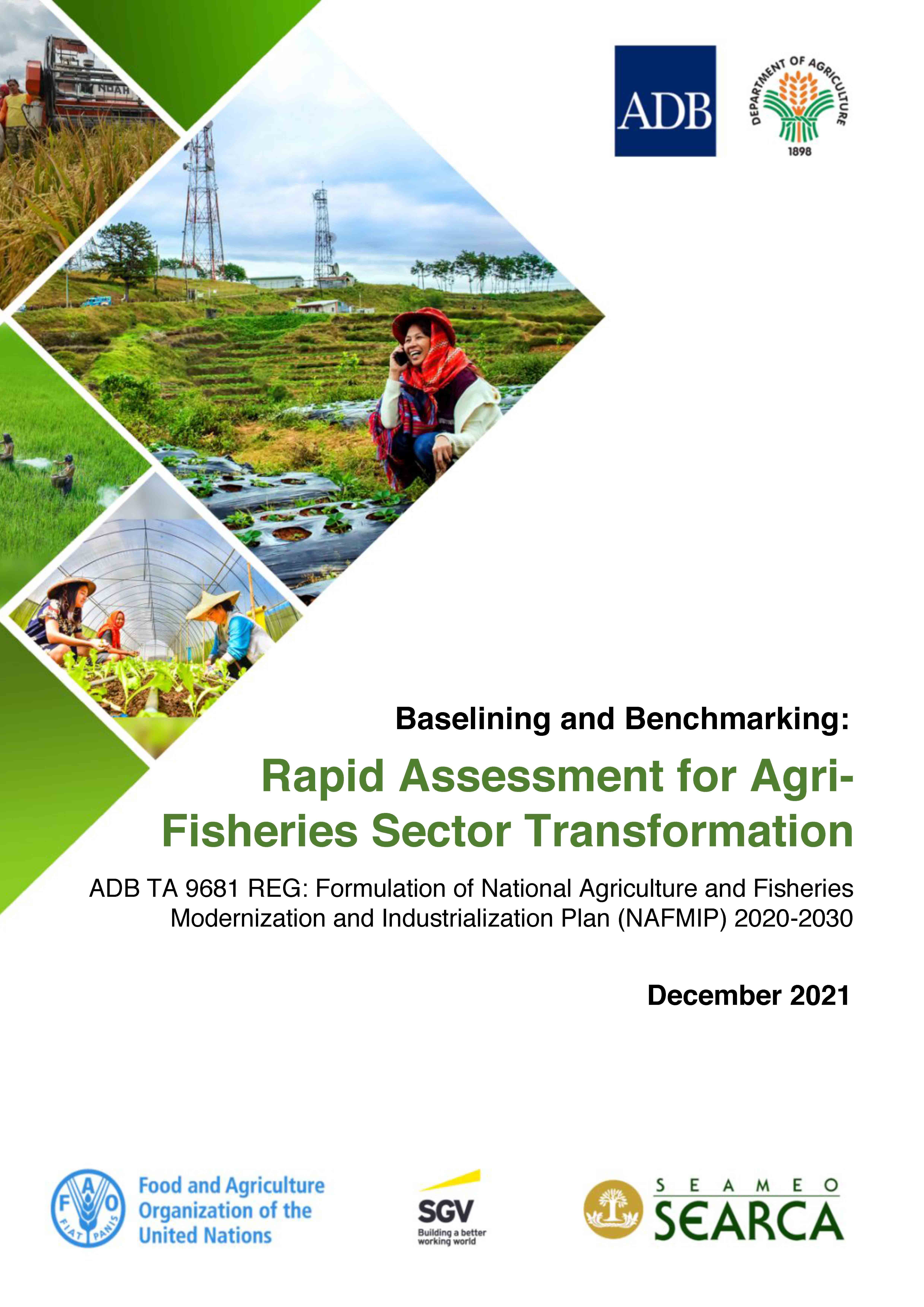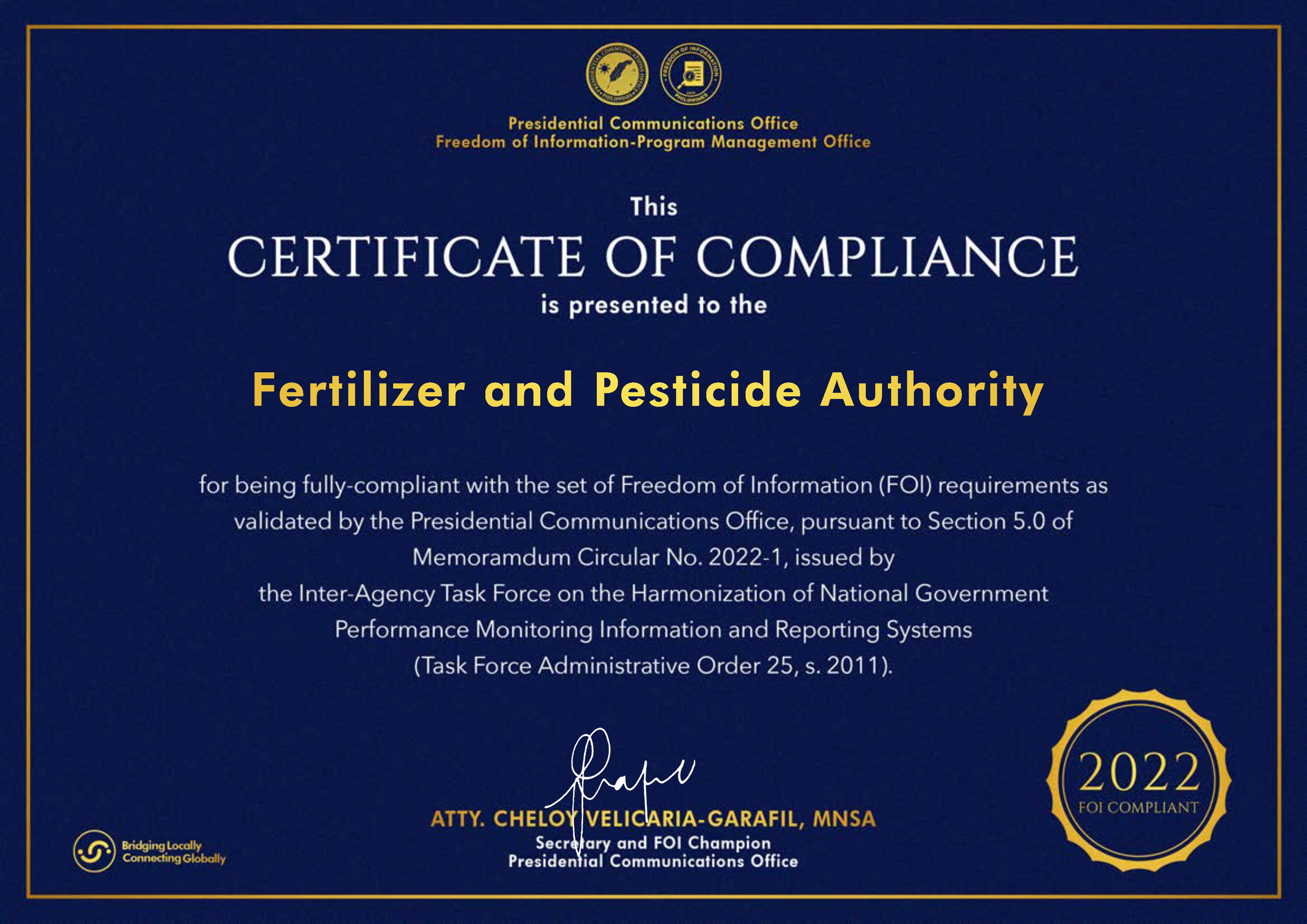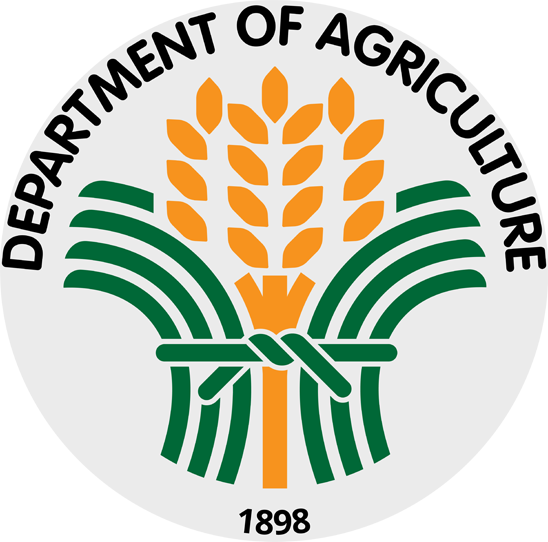FPA Initiates First Balanced Fertilization Strategy (BFS) Meeting
Written by Fertilizer Regulations Division l Published: 05 January 2022
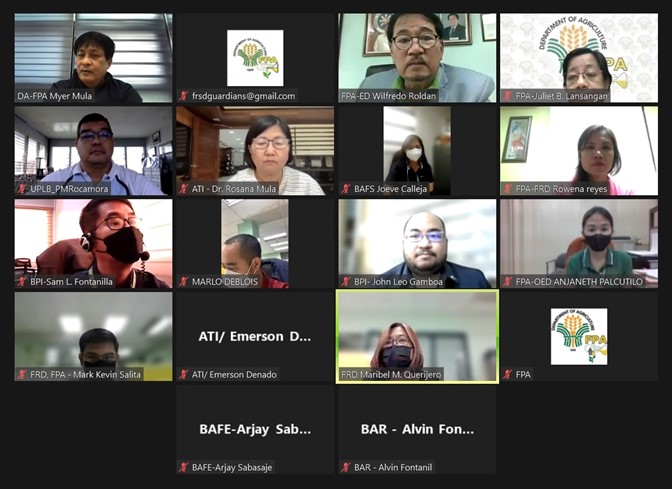
QUEZON CITY, January 5, 2022 - To kickstart the Balanced Fertilizer Strategy (BFS) Program, the Fertilizer and Pesticide Authority (FPA) initiated its very first meeting via Zoom application. Representing FPA were Executive Director Wilfredo Roldan; Deputy Executive Director for Fertilizer Dr. Myer Mula; Ms. Anjaneth Palcutilo; Fertilizer Regulations Division (FRD) Chief Ms. Julieta Lansangan; Supervising Agriculturist Rowena Reyes; Senior Agriculturists Maribel Querijero and Marlo Deblois; Agriculturist II Jesson Garcia; and Agriculturist I Mark Kevin Salita. The other member agencies were represented as follows: Dr. Rosana Mula, Director (ATI), Ms. Joeve Calleja (BAFS), Mr. Samuel Fontanilla and Mr. John Leo Gamboa (BPI), Prof. Patrick Rocamora (UPLB), Engr. Arjay Sabasaje (BAFE), and Mr. Alvin Fontanil (BAR).
Director Roldan, in his welcome remarks, recognized the FPA group lead by Dr. Myer Mula, as the focal person for FPA-BFS-TWG (Technical Working Group). He then gave a brief background and stated that BFS came about as an instruction from DA Secretary William Dar to mitigate the rising cost of fertilizer. Dir. Roldan emphasized the need for BFS wholistic approach as OneDA reform agenda and achieve mileage on this program to be reported to Secretary Dar in the forthcoming FPA board meeting.
Dr. Mula made a brief presentation about the BFS rationale wherein the strategy is a means to address the problems on rising cost of fertilizer, land degradation, and decline in soil fertility through adjustments in the cropping and management systems. The strategy is also a climate smart adaptation taking into consideration the concept of 4 Rs: Right Nutrient, Right Quantity, Right Method and Right Time.
In addition, the roles of SUCs related to agriculture and attached agencies were discussed:
- State Universities and Colleges (SUCs), for capacity building on research and extension related to soil science, crop production, farming systems;
- Fertilizer and Pesticide Authority (FPA), for providing information about registered and regulated products with details on 4Rs on nutrient management;
- Agricultural Training Institute (ATI), for education and training on balanced fertilizer strategy;
- Bureau of Agricultural Research (BAR), for research on balanced fertilizer strategy;
- Bureau of Agriculture and Fisheries Engineering (BAFE), for the design and inspection of machineries and manufacturing plants for local fertilizer, and farm systems;
- Bureau of Agriculture and Fisheries Standards (BAFS), for standards and organic fertilizer products/organic agriculture;
- Bureau of Plant Industry (BPI), for concerns on Good Agricultural Practices (GAP) and Food Safety;
- Bureau of Soils and Water Management (BSWM), for BFS application, fertility mapping by region and per beneficiary, soil testing, and among others, and
- Bureau of Animal Industry (BAI), utilizing animal wastes for organic fertilizer production/manufacture.
Creation of OneDA TWG
During the open forum, it was agreed by the participants that the lead agency or the Chair of the TWG, will be the Bureau of Soils and Water Management (BSWM) since they have the mandate and technical capabilities as well as the authority to implement the BFS Program. Adopted also is the Co-Chair by the Bureau of Agricultural Research (BAR) due to their research strength, among others. Other Agencies will serve as members of the TWG.
Creation of Agencies TWG
Each member institution or agency was tasked to come up with their own TWG to develop their Agencies BFS programs, duties and responsibilities.
Ways Forward
Other upcoming tangible outputs of the TWG will include the crafting of the BFS Operations Manual, which will be consolidated by BSWM; the standards and recommendations for its implementation; a draft for the fertilizer watch system; and a fertilizer monitoring system for the BFS database.
To conclude, Director Roldan thanks all the participants and hoping for the successful implementation of the Program, in pursuit of an improve soil structure, judicious use of fertilizers for food security and resilient Philippines with empowered and prosperous farmers and fisherfolk.
Fertilizer and Pesticide Authority (FPA) Online ISSN: 2815-1674
Published by the FPA Information and Communications Team
